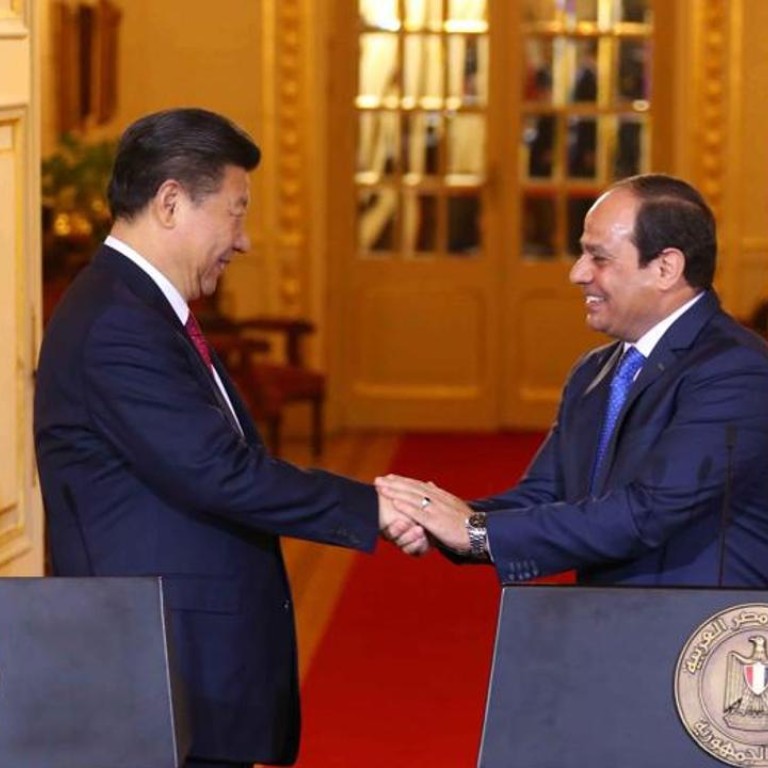
Time for China to step forward and help the Middle East
The package of financial and humanitarian assistance unveiled by Xi Jinping at the Arab League will ensure mutual benefits for both the region and China
President Xi Jinping’s (習近平) first Middle East visit was always going to be more about trade and investment and pushing support for his “One Belt, One Road” initiative than brokering peace in the volatile region. Yet his four-day trip to the Middle East’s most important countries, Saudi Arabia, Egypt and Iran, has brought stronger ties and an understanding that China is now ready to help pull the region out of its quagmire. Instead of the intervention favoured by Western governments, there will be a distinctly Chinese approach: economic development and improving the livelihoods of people. This is what being a responsible world power is about.
The region’s straddling of East and West, its huge reserves of oil and rich cultural and religious diversity should be benefits. Instead, there is unrest and instability, the result of Western interference in the name of self-interest, religious intolerance and tribal rivalries. There are civil wars, the rise of Islamic State, terrorism and a refugee crisis. The US and its allies are now distrusted and have taken a back seat.
It makes sense that at such a time, China should step forward. With its economy slowing, it needs overseas markets to help drive growth. The package of financial and humanitarian assistance unveiled by Xi at the Arab League in Cairo on Thursday will ensure mutual benefits. There will be billions in loans, a common investment fund with the United Arab Emirates and Qatar, and humanitarian aid for Syria, Yemen, Jordan, Lebanon and Libya.
READ MORE: Key facts behind China’s warming ties with Saudi Arabia, Iran and Egypt as Xi Jinping signs mega oil deals during his Middle East tour
The president’s trip came amid a rift between Saudi Arabia and Iran, the Middle East’s leading representatives of Islam’s rival Sunni and Shiite factions. Diplomacy came to the fore in planning the trip; Saudi Arabia, China’s biggest oil source, was first; Egypt, with which it has had the region’s longest diplomatic relations, next; and then to Iran, dependent on Chinese exports during years of Western isolation over its nuclear programme.
China played a key role in negotiating a deal over the nuclear row and Xi was the first leader to visit since the sanctions were lifted last weekend. That placed Beijing in good stead to strengthen oil contracts, business and export deals and investments. Just a week before the trip, China released its first policy paper on the Middle East. It lays out a vision for Arab relations, with energy and security cooperation being foremost.
China is only too aware of the challenges and pitfalls of greater engagement with the region. But Xi has shown his nation is willing to step up and the help is as welcome as it is necessary.

